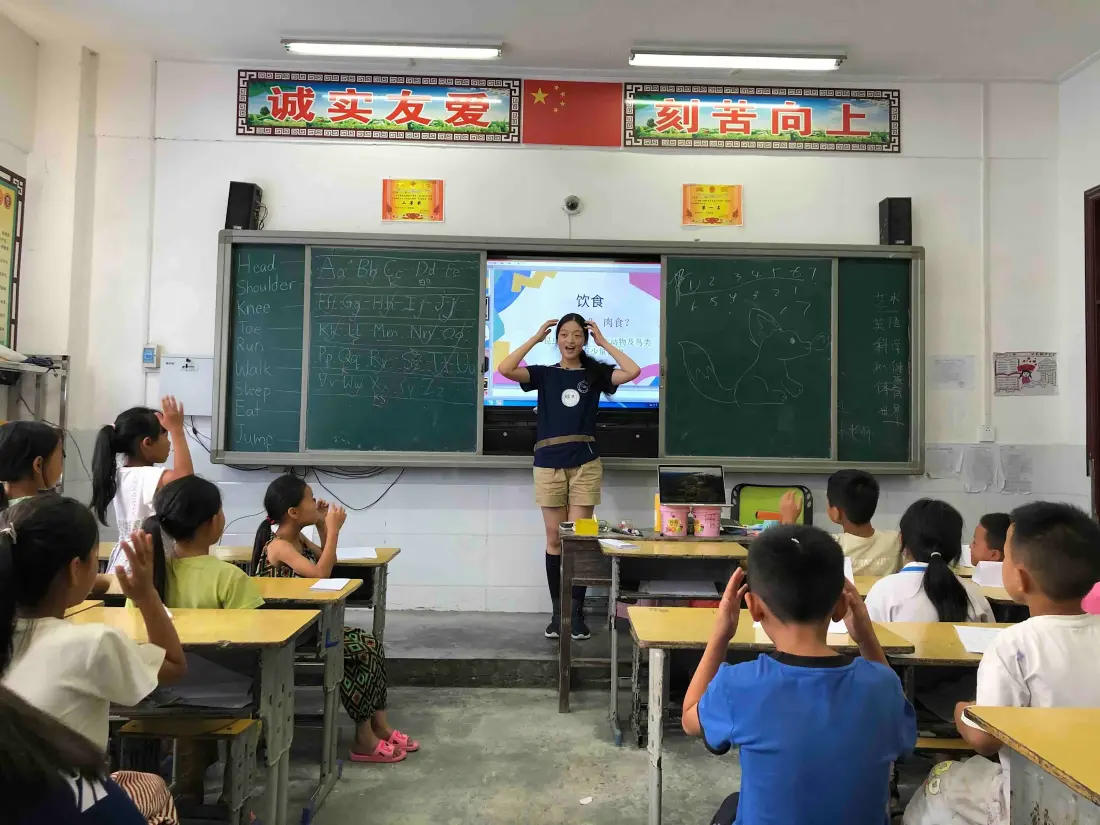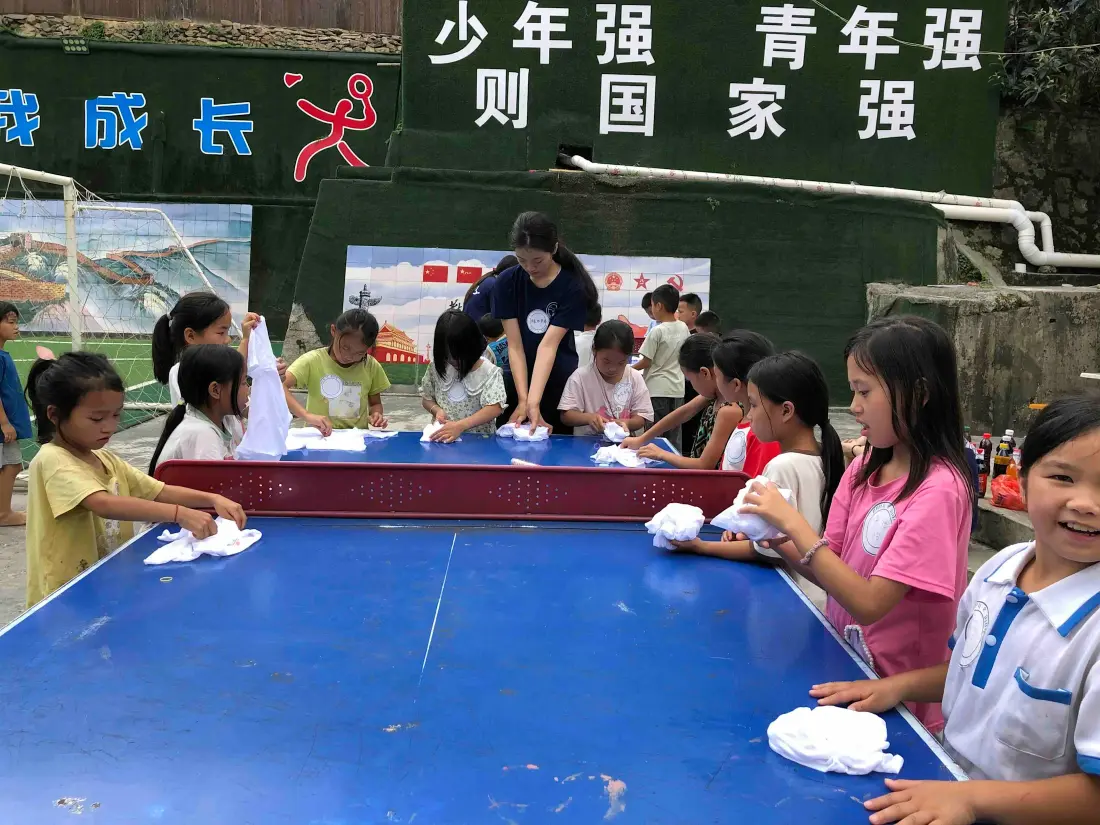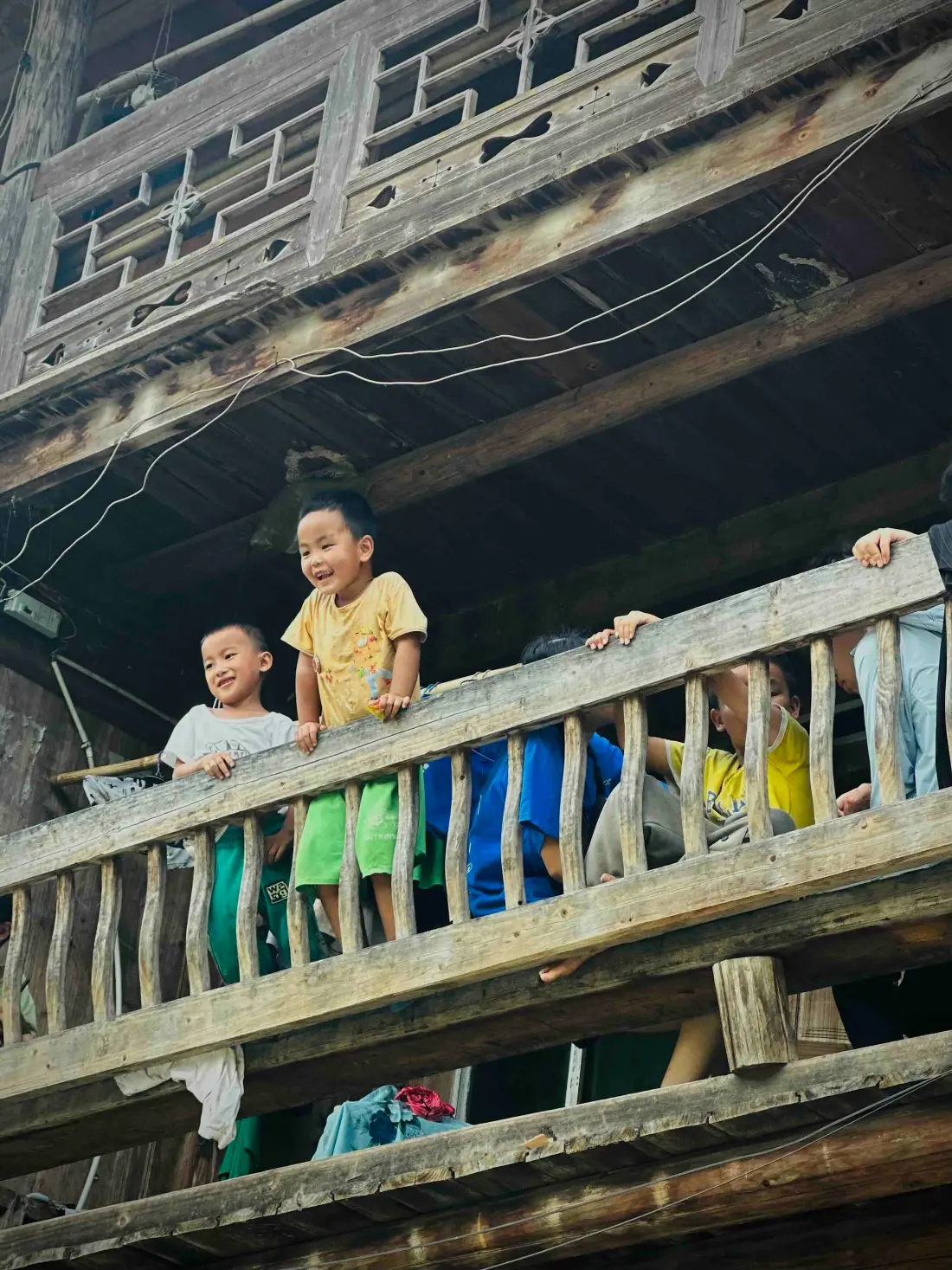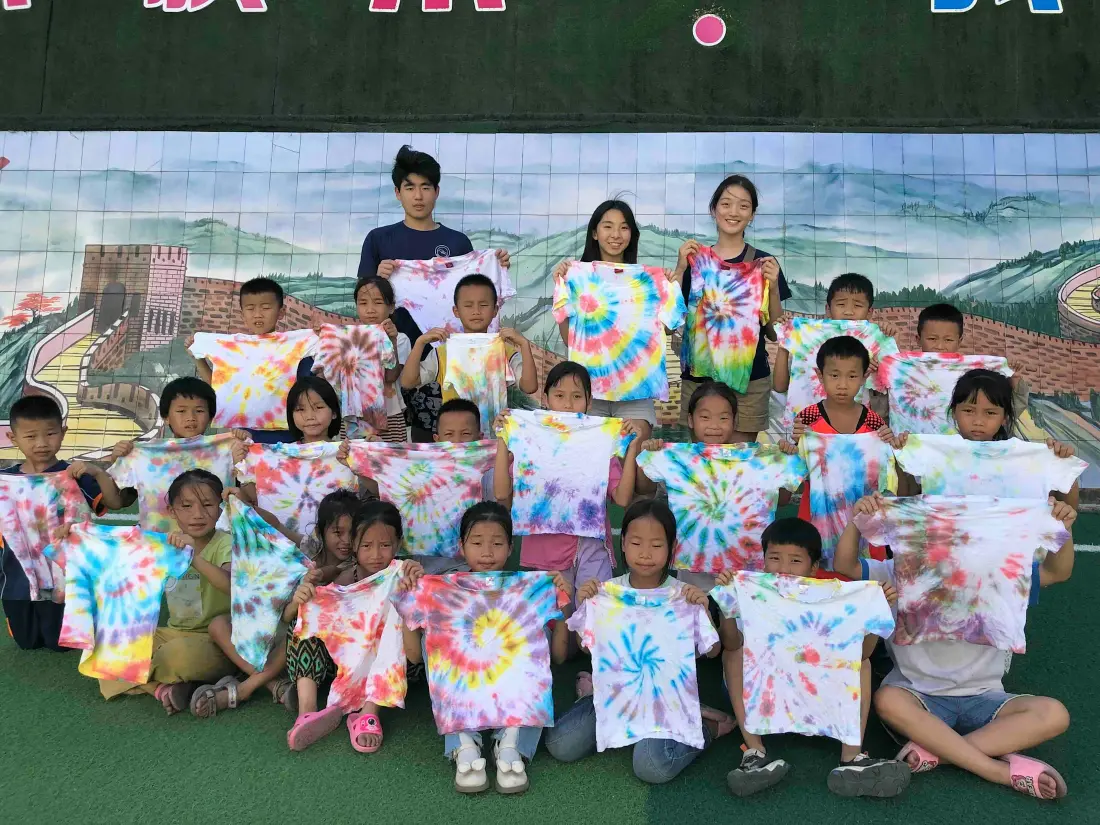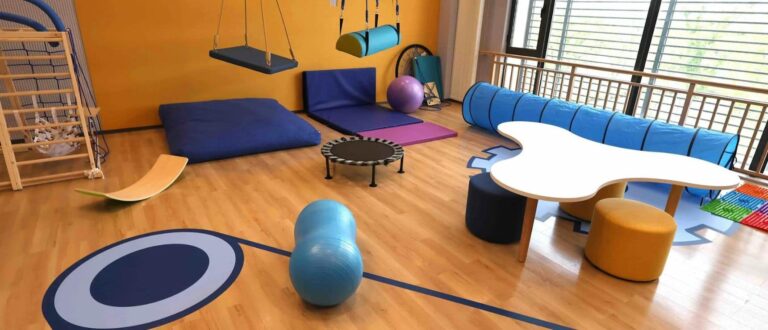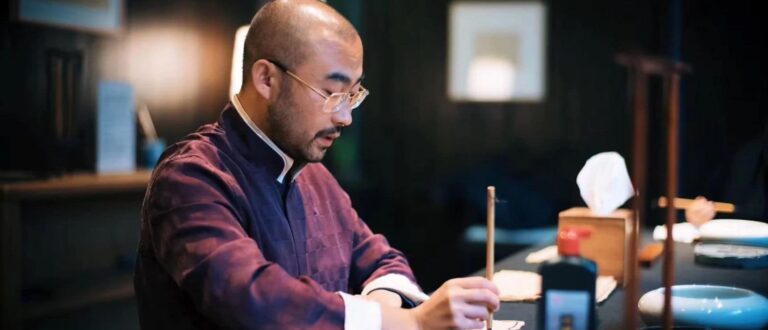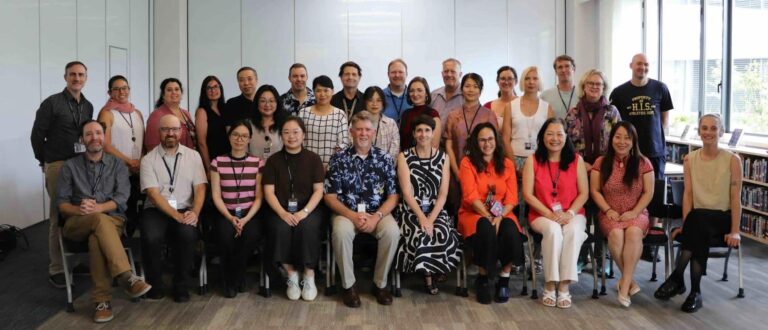Hello everyone. My name is Naomi X, and I am a ninth grader at Hangzhou International School. Last summer, during July of 2024, I received the opportunity to travel to Gao Pai Village in the mountains of Guizhou to teach a summer school with a group of other students.
Gao Pai is a tiny village, so small it doesn’t come up on the internet. It’s in a remote location: even after arriving at Guizhou, it required a train transfer and almost two hours of winding mountain road to access the village. It is so small it doesn’t come up on the internet.
The Gao Pai School is the most prominent building in the town. It’s four stories tall, with only two classrooms on each floor and no plumbing or air conditioning. However, it is by far the best building in the entire village. Outside the school gates are leaning wooden houses with ladders instead of stairs and tin and straw rooftops.
The students we taught were largely “left-behind” children whose parents had migrated to urban areas for work, leaving them in the care of one parent or other relatives.
I was assigned to a second grade class. Instead of teaching specific school subjects, we tried to teach lessons that encouraged hands-on activities, creativity, and surrounded exploring the beauty of the world. As an older student explained, our classes aimed to inspire new interests and encourage the kids to see the larger world.
Examples included Arts and Crafts, Choir, and a class dedicated to introducing wild animals and famous global landmarks. We made miniature volcanos with vinegar and baking soda, tie-dyed T-shirts, and drew pictures of rainforest animals together.
The summer school was optional, yet on the first day I was surprised by how many children showed up. However, it was difficult to encourage any of them to participate in class unless there was a clear and singular correct answer.
We tried to close the distance between us by teaching in a casual manner. I tried and unfortunately failed to make jokes, but afterwards I found the students talked to me (and laughed at me) more.
During one break, I tried teaching a group to play nursery rhyme clapping games, which became popular as the whole class joined in. As a result, there are a few dozen kids in the mountains of Guizhou who know how to play Coconut Crack and Stella Ella Ola.
One my most memorable experiences regarding formal lessons was an activity where kids described what they most wished to do once they grew up. Their answers were strikingly similar: reflecting a shared curiosity for the world beyond the mountains and goals related to exploration and new experiences:
“I want to live in a city.”
“I want to see the Great Wall in person.”
“I want to see a skyscraper.”
“I want to travel the world.”
It was hard to realize that most of their largest aspirations are something that we experience in our everyday lives: travelling, flying by airplane, chocolate, or simply living in a city. What was more, having to “realize” that fact was surprising for me.
I live in an international environment, and I’m not unfamiliar with researching issues and trying to understand the struggles others go through, but I did not expect the impact that seeing stark difference between our lives and the lives of left-behind children gave me.
It was hard to realize that most of their largest aspirations are something that we experience in our everyday lives: travelling, flying by airplane, chocolate, or simply living in a city. What was more, having to “realize” that fact was surprising for me.
Witnessing something firsthand is unlike any insight we could ever scrape from typed words on a webpage. It makes the people real, alive and vibrant with their own unique traits. People like:
- The girl with a round face who liked to watch me doodle
- The boy who likes Messi
- The tiny boy with the enormous pet beetle who chased us around the field with it
- The girl with the ponytail who is really good at dancing
- The tall girl who wanted to learn piano and sat doing so with me for the whole break
- The boy with a nick on his chin who likes chocolate and singing pop songs
- The girl who made faces in the back of the room and brought her baby brother to class
- The boy who left class to help his grandmother with their crops
These children represent only a miniscule fraction of kids in similar environments. There are more than 61 million left-behind children in China’s rural areas.
How many of these kids are never encouraged to explore their passions, never realize how many possibilities this world offers, are never given the opportunity to conceive the diversity of the world?
Left-behind children are a highly vulnerable population, often lacking the attention and resources needed to thrive, and the absence of a responsible guardian. Official programs training social workers to address the issue only reach 0.5% of left-behind children. There is a critical shortage of a professional workforce to protect and support them.
We were fortunate enough to have met these children in Gao Pai, and I sincerely hope we’ve made at least a small change to their lives, but there are millions more who need our attention and care.

